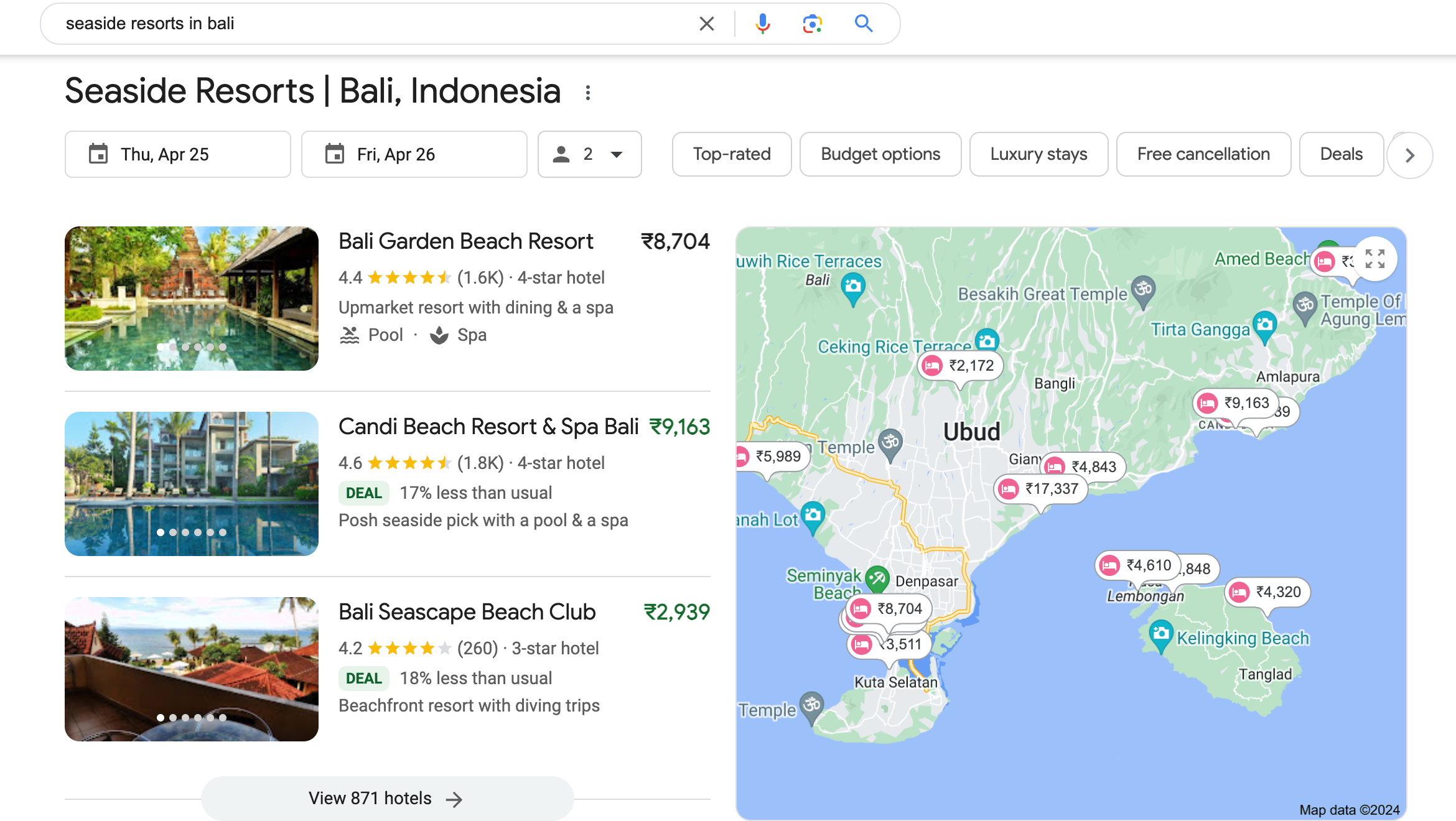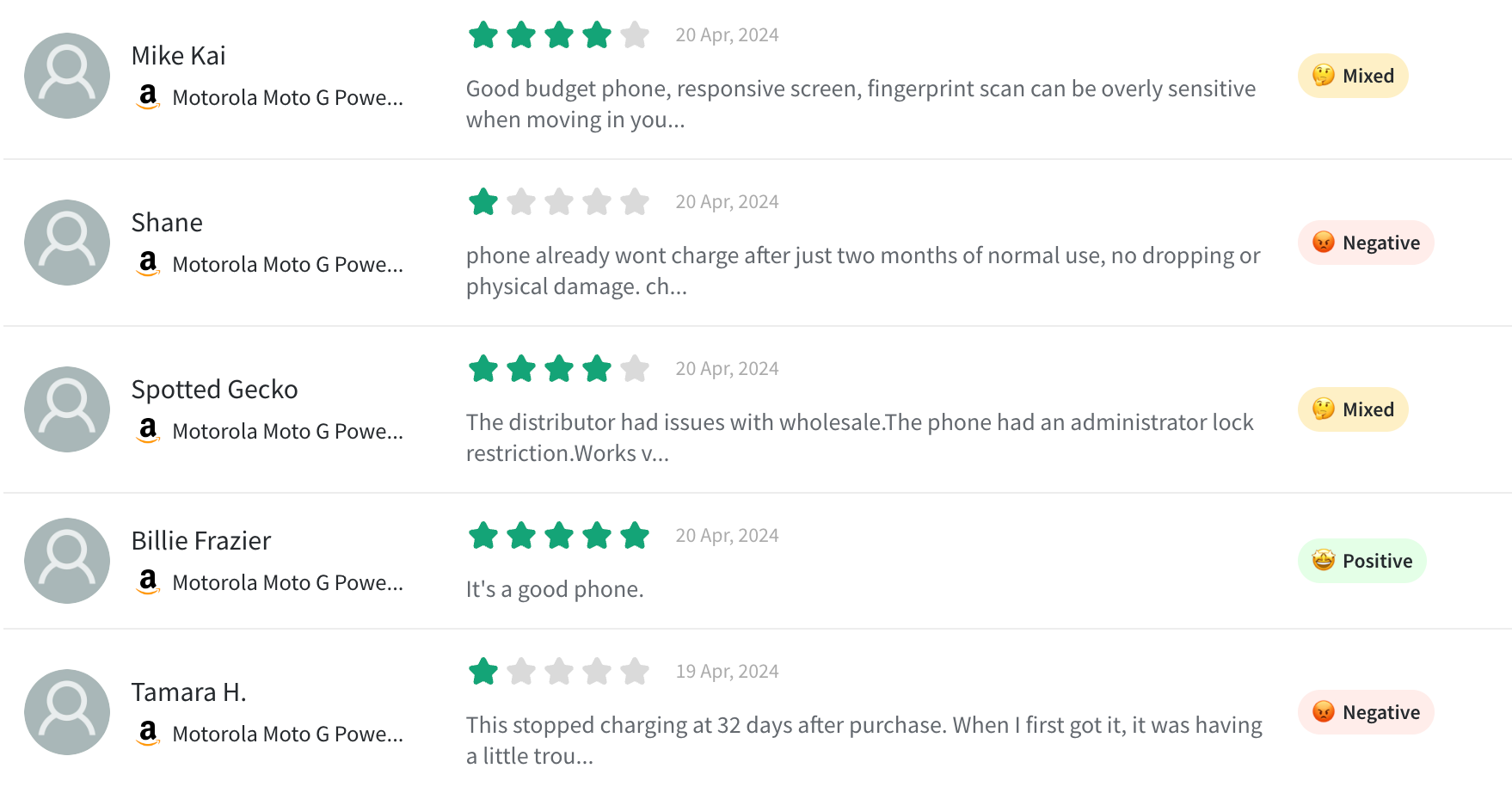Reputation Management
Online Reputation Management for Small Business: A Guide for Going Big
Article written by Parvathi Vijayamohan
Content marketer at SurveySparrow.
13 min read
19 September 2025

Imagine you’re the owner of a grocery business which has recently moved into the online space. While things are going well overall, you just got some negative reviews, and these have hurt your ratings on Google Maps.
Sounds familiar? Then you’ve got good reason to consider online reputation management.
In 2025, success has become synonymous with reputation. With the rise of online reviews, social media, and digital feedback, even small businesses need to put their best foot forward.
So, let’s dive into our guide to online reputation management for small businesses.
What is Online Reputation Management in Small Businesses?
Online Reputation Management (ORM) for small businesses refers to the practice of actively shaping, monitoring, and maintaining how your small business is perceived online. It involves strategies and actions designed to protect your brand’s image, build trust, and foster credibility.
Why Should Small Businesses Care About ORM?
The thing is, your online reputation can make or break your business. Most people check online reviews, social media, or search engines before deciding where to spend their money. ORM helps you -
- Attract Customers: Positive reviews and a polished online profile make people want to give you a try.
- Build Trust: When you engage with feedback, customers see that you care.
- Stay Ahead of Issues: Addressing negative feedback before it spirals out of control protects your business.
14-day free trial • Cancel Anytime • No Credit Card Required • No Strings Attached
How does online reputation management differ for a small business versus a large corporation?
| Corporations | Small Businesses | |
|---|---|---|
| Scale | Deal with a much larger volume of online data – reviews, social media mentions, news articles. | Typically have fewer online mentions and reviews to track. |
| Resources | Invest in sophisticated monitoring tools and may have dedicated ORM teams. | Rely on manual monitoring or free tools and focus on a smaller number of key platforms. |
| Crisis Management | Follows established protocols for responding to negative press or social media attacks. | Reacts quickly and addresses the issue directly with the customer. |
| Brand Advocacy | Relies on a broader range of brand advocacy strategies, including influencer marketing, customer loyalty programs, or community forums. | Can leverage personal connections with customers and incentives to encourage positive reviews. |
| Overall Focus | Maintaining an established presence, reputation repair for past issues or proactively shaping the online conversation. | Building a positive online presence from scratch, focusing on encouraging reviews and creating high-quality content. |
In short, think of ORM like a garden. For a small business, it’s about weeding out negative comments, and cultivating good reviews. For a corporation, it’s about managing a vast landscape, and dealing with everything from weeds and pest attacks to the occasional storm!
Why Should You Invest in Online Reputation Management if You’re a Small Business?
1. To Build Trust and Credibility
Just like a personal recommendation from a trusted friend, most people check out online reviews before making a purchase. According to a study by Testimonial Engine, more than 88% of customers will read a review first before taking action.
So, in short – the more social proof your business has, the more customers are willing to trust you. Thanks to effective social proof tools.
“Online reviews represent real-life experiences, offering potential customers a glimpse into the quality, value, and reliability of the product or service they’re considering.”- Mention
One example of a brand that got increased sales due to online reviews is Amazon.
According to Amazon’s guidelines, written reviews should be at least 20 words and no more than 5,000 words. As well as showing the content provided by reviewers, the platform also displays the total number of ratings.
Additionally, text reviews, photos, and videos are categorized separately. These help build trust and credibility among consumers.
2. To Stand Out from Competitors
Imagine that you are looking for a beachfront resort in Bali. So you Google it, and you are presented with a huge range of options – most of them identical in terms of ambiance, facilities and prices.
You’re unsure which one to pick, so you dive deep into their online ratings and reviews.
With 81% of customers using Google to evaluate local businesses, how your business appears online can make a huge difference to your bottom line.

3. To Diminish Negative Publicity
When does publicity become negative? You can tell by its impact. Research by Moz shows that with just one negative article, you risk losing 22% of potential customers.
Take that to four or more? You might lose nearly 70%.
Negative reviews are unavoidable, but how you respond to them matters. ORM strategies can soften their impact because they help you address these issues promptly and professionally.
Nike is an example of a brand that has mastered online reputation management.
They created a dedicated social media handle for customer support, created a response team, and allowed customers to contact them directly through the Twitter handle @NikeService. In this way, they are able to respond to customers and resolve issues faster.
4. To Enhance Brand Perception
Imagine you’re meeting someone for the first time. Their clothes, the way they speak, and their overall vibe all contribute to the impression you form about them, right?
Brand perception is kind of the same. It’s not what the brand says about itself, but what people think and feel about it, based on their experiences and exposure.
Here’s a breakdown for you:
- It’s a feeling – Think about your favorite brand of shoes. Do they make you feel sporty, stylish, or comfortable? That feeling is part of the brand perception.
- It’s shaped by many things – Ads, social media buzz, product quality, customer service, even the logo and colors – all these things influence how people perceive a brand.
- It’s not always perfect – A brand might want to be seen as reliable. But if their customer service is terrible, people might perceive them as sloppy instead.
So, brand perception is like a reputation – it’s built over time and reflects the overall impression people have of it. It can influence whether someone chooses that brand over a competitor. This is why online reputation management is so important.
5. To Boost Search Engine Rankings
In a perfect world, potential customers would land right on your doorstep (or website). But with so much competition out there, the reality is that people need a reason to find you in the first place.
Good discoverability – that is, good rankings – can help a small business compete with larger, more established companies, regardless of budget.
So, how does ORM play a role in search engine rankings?
Google considers factors like online reviews, social media mentions, and brand awareness when ranking websites.
When your business performs well in these 3 areas, that sends a positive signal to Google. These lead to improved rankings and higher click-through rates, which can boost your website’s rank over time.
Additionally, a good online reputation is also vital for local SEO. Positive reviews on Google My Business and other local directories can greatly boost your ranking.
What’s the difference between ORM and SEO?
Online reputation management and search engine optimization are two sides of the same coin, with different goals and strategies.
- SEO focuses on visibility: An SEO strategy focuses on ranking one property (usually a website) for broad keywords that people use to find your business (such as ranking a baby clothing website for the term “stylish baby clothes“). SEO improves a website’s visibility in search engine results pages (SERPs) through strategies like keyword optimization, content creation, and link building.
- ORM focuses on managing perceptions: An ORM strategy aims to rank several properties for a branded keyword. These would be for a name, rather than more general terms (such as “BeBee Babywear“). ORM may incorporate SEO strategies as well.
How to Manage Online Reputation for Small Businesses
Managing your business’s online reputation is all about showing up, staying engaged, and building trust. It might feel overwhelming at first, but with consistent effort, you’ll create a reputation that draws people in.
Here's how you can do it.
1. Keep an Eye on What People Are Saying
First things first, you need to know what’s being said about your business online. Think of it like staying in the loop about the chatter in your neighborhood.
Why Does It Matter?
Imagine a customer leaving a complaint on social media, and you only discover it weeks later. Not ideal, right? Monitoring lets you catch issues early and jump into the conversation when needed.
How You Can Do It:
- Google My Business: This is crucial for local businesses. It allows you to manage your listing, publish your location, add photos, and get customer reviews.
- Social Media: Set up profiles on platforms like Facebook, Instagram, TikTok, Reddit or Nextdoor – whichever is relevant to your target audience.
- Review Sites: Claim your profiles on popular review sites like TripAdvisor, and Google Reviews.
“77% of consumers will use at least two review platforms in their business research.” – BrightLocal
2. Claim Your Space Online
You want to make sure your business looks polished and professional wherever customers might find you.
Why Does It Matter?
When people Google your business, they should see accurate info about your hours, address, website, and all that good stuff. Plus, having control over your online profiles helps you stay ahead of any misinformation.
What to Do:
- Google My Business: Verify your listing, update your details, and upload some great photos that show off your business.
- Social Media Profiles: Make sure all your profiles (Facebook, Instagram, LinkedIn, etc.) are consistent. Use the same logo and tone, so people instantly know it’s you.
- Specialty Platforms: If your business is niche—like a restaurant or a salon—be sure to claim your profile on platforms like Zomato, or similar.
- Alerts: Set up Google Alerts for your business name and variations of your keywords. This will notify you whenever someone mentions you online.
- Social Listening Tools: Free or paid tools, like the ones listed below, can help you track brand mentions across various platforms.
- Regular Reviews: Make it a habit to regularly check your profiles on review sites and social media for new mentions.
3. Get Those Positive Reviews Rolling In
Happy customers? Let’s make sure their good vibes are shared!
Why Does It Matter?
People trust online reviews like they trust word-of-mouth. A strong rating can make someone choose you over a competitor.
How to Get Reviews:
- Just Ask: A lot of customers are happy to leave a review, you just have to ask! Slip it into a conversation or follow up with an email or text.
- Make It Easy: Send them a direct link or a QR code they can scan. The easier it is, the more likely they’ll do it.
- Respond to the Good Stuff: When someone leaves a nice review, reply to it! Thank them and highlight something specific they mentioned.
4. Handle Negative Feedback Like a Pro
We all mess up sometimes, and that’s okay. What matters is how you handle it.
Why Does It Matter?
Ignoring complaints or getting defensive? Big no-nos. People are watching how you respond, and a professional, caring approach can actually win over skeptics.
Here’s How to Deal:
- Acknowledge Quickly: If someone’s upset, reply within a day. Even if you don’t have an immediate solution, let them know you’re on it.
- Stay Cool: Don’t argue or point fingers. Stay calm and professional. Something like, “We’re really sorry this happened. Let’s fix it” goes a long way.
- Take it Offline: For complicated issues, ask them to DM or email you so you can sort things out without the world watching.
5. Share Valuable Content
The quality of your content is a way to show off your expertise and build trust with your audience.
Why Does It Matter?
People love learning from businesses they trust. Sharing useful info makes you the go-to expert in your field.
What to Share:
- Start a Blog: Post tips, guides, or industry insights. For example, if you’re a florist, write about how to keep bouquets fresh longer.
- Be Social: Use Instagram, Facebook, or LinkedIn to share behind-the-scenes content, customer stories, or quick tips.
- FAQs: Got questions customers ask all the time? Turn those into blog posts, videos, or even fun graphics.
6. Be Social (and Actually Social)
Your social media is more than just a place to post pretty pictures. It’s where you connect with your customers.
Why Does It Matter?
People often check your social profiles before making a decision. If they see a lively, responsive page, they’re more likely to trust you.
How to Nail It:
- Post Regularly: A quiet page can look like a closed business. Use a content calendar to keep things fresh.
- Engage with People: Reply to comments, answer DMs, and thank people for tagging you in posts.
- Partner Up: Collaborate with influencers or local businesses to reach a bigger audience.
7. Encourage Word-of-Mouth Love
What do you think is your best marketing tool? Happy customers telling their friends about you.
Why It Matters?
Referrals are super powerful because they come from a trusted source.
How to Get Them Talking:
- Offer Incentives: Give discounts or freebies for referrals. It’s a win-win.
- Go Above and Beyond: Exceptional service gets people talking. Aim to wow every customer.
8. Have a Plan for Crises
Every business faces hiccups. Being prepared helps you handle them like a champ.
Why Does It Matter?
A quick, honest response can turn a potential PR nightmare into a moment that builds trust.
Crisis Control 101:
- Be Honest: If you messed up, own it. Apologize and explain what you’re doing to make things right.
- Stay Transparent: Keep customers in the loop about how you’re handling the issue.
- Respond Everywhere: If the issue is public, reply publicly—but politely.
9. Use Email to Stay Connected
Email is still one of the best ways to keep your customers in the loop.
Why Does It Matter?
It’s personal, direct, and a great way to build relationships.
Email Tips:
- Send Updates: Let people know about new products, promotions, or events.
- Ask for Feedback: Include a survey link and make customers feel like their opinions matter.
- Make It Personal: Use their name and tailor the content to their preferences.
10. Keep Improving
Your reputation management isn’t a one-and-done thing. It’s an ongoing process.
Why Does It Matter?
You’ll spot trends and learn what works and what doesn’t over time.
How to Do It:
- Track Metrics: Keep an eye on your reviews, social engagement, and customer feedback.
- Adjust as Needed: If something isn’t working, tweak it. Always be open to trying new strategies.
Related Read: Best reputation management tools.
Which Online Reputation Management Tool is Best for Small Businesses?
SurveySparrow’s powerful Reputation Management software allows you to access, manage, and respond to reviews from 99+ review sites on a single dashboard. It also enables you to understand the sentiment behind each review.

Get instantly notified whenever someone posts a review by setting up custom workflows.
This applies to Slack too – you can get alerts for reviews based on custom conditions. For instance, you can set up an alert message when someone gives a 1-star rating.
You can also filter these reviews, and ticket them for further action.
For example, let’s say that a customer posted a glowing review highlighting the great service they got from Susan, a junior employee. You can create a ticket for that review and assign it to HR for the next step – which can be a reward or a kudos for Susan in your internal group.
Need help replying to reviews? Ditch the canned responses – our AI will help you draft replies in real-time.
You can also showcase the best reviews by embedding them on your website.



Protect your brand image now. Start monitoring your reputation today!
Parvathi Vijayamohan
Parvathi is a sociologist turned marketer. After 6 years as a copywriter, she pivoted to B2B, diving into growth marketing for SaaS. Now she uses content and conversion optimization to fuel growth - focusing on CX, reputation management and feedback methodology for businesses.
Related Articles

Reputation Management
Your Guide to Healthcare Reputation Management
8 MINUTES
30 June 2024

Reputation Management
11 Best Online Reputation Management Tools
14 MINUTES
24 January 2026

Reputation Management
How to Protect Your Online Reputation? 5 Easy Ways
9 MINUTES
9 January 2025

Reputation Management
A Tell Guide on Local Reputation Management
13 MINUTES
2 March 2025
